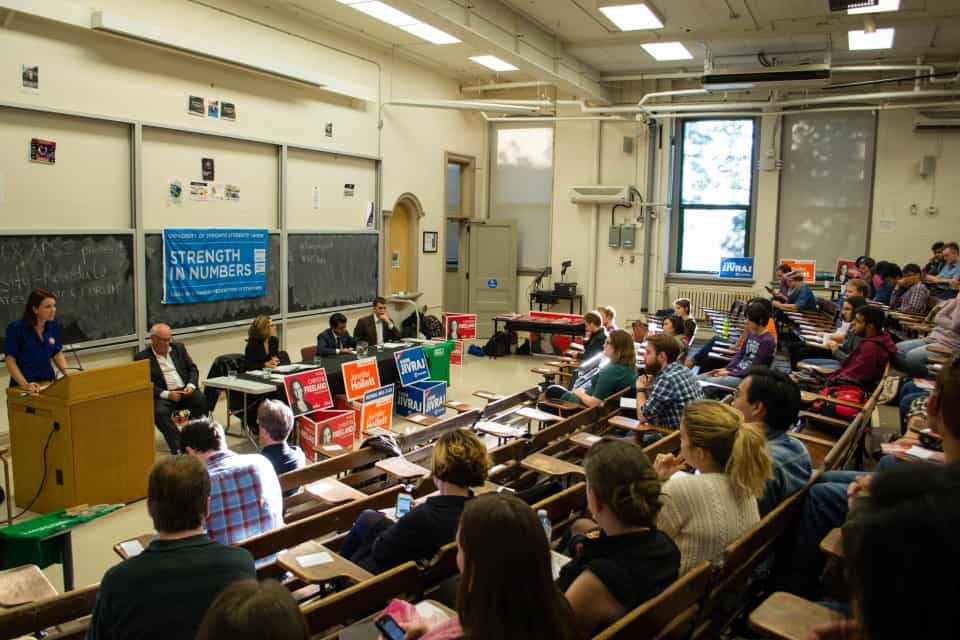Last week, the University of Toronto Students’ Union (UTSU) hosted voter education sessions, panel discussions, and a lively candidates’ debate as part of it’s first Democracy Week.
Panel discussion
A panel discussion on democracy included Toronto’s Consuls General of Greece and Trinidad, and Bushra Nassab, president of the Association of Political Science Students at U of T.
The panel discussed impediments to democracy in the Middle East, the surprising democratic support for radical parties in Greece and both the strengths and weaknesses of Canadian democracy, focusing especially on our low — approximately 60 per cent — voter turnout.
At the student forum, student representatives from the four main political parties spoke to topics spanning from student debt to foreign policy and debated issues such as lack of tuition support from the province and respect for First Nation’s rights.
The UTSU and the Association of Political Science Students also hosted ‘Vote Pop Ups’ — an initiative aimed to educate students on how to vote — and have started a ‘#voteposal’ campaign, which encourages students to ask others to vote with them and to share the moment they pledge to vote on social media.
The Debate
To cap off the week, the UTSU hosted a debate between University-Rosedale candidates Karim Jivraj (Conservative), Chrystia Freeland (Liberal), Jennifer Hollett (NDP), and Nick Wright (Green).
The candidates discussed topics ranging from Canadian identity to marijuana, and laws governing sex work in Canada.
Freeland came out in favour of marijuana legalization, Hollett for decriminalization, Jivraj firmly against decriminalization and legalization, and Wright in favour of the legalization of a host of psychedelic drugs, citing Portugal’s success with a similar policy, in addition to marijuana.
On the subject of the refugee crisis, Wright and Jivraj criticized the Liberals’ and the NDP’s “bidding war” over refugees and for not addressing the core issue — destabilization in the Middle East. While Jivraj thinks the solution is more military engagement to stop the Islamic State of Iraq and Syria (ISIS). Wright argues that since Western intervention had a role in creating the region’s instability, Canada should stay out of the conflict.
Democracy Week and Students
Nassab said that while the turnout for some events wasn’t ideal, she feels great about what the week accomplished and hopes to make Democracy Week a yearly tradition, encouraging students to get informed, involved, and engaged in politics.
“There’s no perfect political structure,” said Jasmine Denike, UTSU vice-president external, “but I think this is the best thing we’ve got. And the only way to make it better is to question it and challenge it and push it to the best it can be.”


